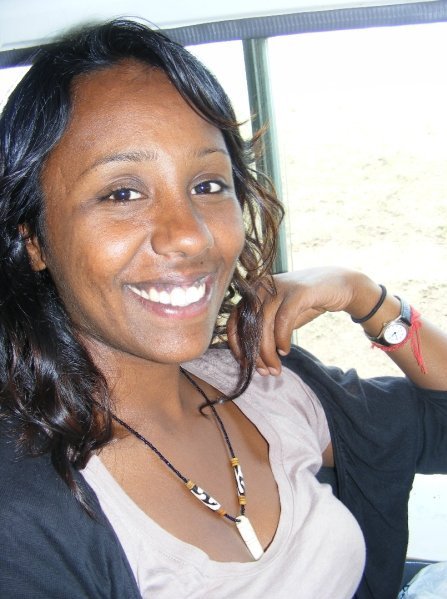
In November 2015 I reached the first anniversary of my volunteer/honorary primary care contract that is specifically intended to help asylum seekers with complex needs. It has more than worked for me and as the months have gone by I have increasingly thought that it is an idea worth passing on.
It is clear that the NHS will never, ever fund this group of patients adequately. Yet these are human beings, just like us. The obvious differences relate to the effects of their experiences. This is the very stuff of primary care – to be an advocate, to try to make sense of an undifferentiated mass of needs, to come up with a plan, and to have the freedom to follow this up. Nowadays, who in mainstream really has the time to do this?
Hello and welcome to all those GPs who are approaching retirement, who used to love the job, who are financially secure, and who are looking round for things to do!
I loved my job – the team is fantastic, the workload was manageable, and the patients are intensely rewarding to treat. It has involved learning completely new skills as well as maintaining the old. My new expertise includes, among many others, such features as learning about the housing labyrinth, the appropriate voluntary sector to approach, and a thorough knowledge of the legal aspects of asylum claims. Despite often feeling humbled and inadequate, I sometimes have the power to change things. For those for whom I feel I have contributed little, somehow my patients do not seem to think that this is the case.
What I did NOT like was the constant background turbulence of targets and finance that was increasingly stealing time from me that otherwise would have been used for this work. But I was being paid to do the job, and so I had a responsibility to conform to the will of my paymasters.
I approached my employer with a suggestion of an Honorary Contract. My idea was to leave formal employment but they would pay for my defence and reasonable CPD. In return I would maintain appropriate Clinical Governance provisions so that I could continue to use NHS resources for the treatment and care of NHS patients on a supernumerary basis. In simple terms, I was to become a volunteer doctor who adds value, but not capacity, to the service. My manager was intrigued and happy to hear me out. As I would now be supernumerary, I suggested that my only role would be to see those patients for whom there was a shortfall in NHS provision and for which my acquired expertise would be appropriate.
After a couple of months of minor logistical juggling we have determined on long “complex consultation” appointments (30 minutes) that are booked by our experienced Nurse Practitioners at their discretion following the New Patient check , with the reviews booked by myself into the same slots.
Two distinct roles have developed – the first being to try to sort out the immediate physical and psychological needs that have been assessed as particularly complex, the other is for documentation of scarring or PTSD following torture for potential reports at the request of their solicitor.
With regard to the first, in practice, most of the complexity is psychological rather than physical and it is good to have the time available that these deserve. It is not generally known that there is no NHS psychological provision for asylum seekers, as the basis of the treatments available is dependent on background stability.
With regard to the latter, the practice has pro-forma letters designed to invite the solicitor to request a formal report from us (with scale of charges) if we feel that this could be indicated and if the solicitor feels that such a report is appropriate. To assist them we give a very brief indication of our preliminary findings. We are careful to say that these cannot be expert witness reports but must be simple documentation of findings – such a simple, or at times complex, report falls well within any front line clinician competency. This arrangement has been going on alongside the clinical work for some years, set up and continued by another doctor more experienced than I. However, as the “normal” workload increased it was becoming much more difficult to continue this “non NHS” work in the same way. The difference it made to me personally was that I could exclusively concentrate on this role and take some of the pressure from the rest of the team, especially as this service was felt to be part of the ethos of the practice. The reports also bring in income to help offset my defence and CPD costs.
It seems to have worked. As it is a particularly “specialist” GP function the demand is not overwhelming. In addition, in my voluntary and supernumerary role I feel that I have control over my workload and this is good for my morale. True, I sometimes have to suppress my conscience when I see how busy my colleagues are and occasionally, when a client does not attend or when I have time for any other reason, I am very happy to help out and take a few patients from them. In truth I need to see a reasonable number of such patients for my appraisal validation, and I supplement the numbers by occasional locums in the same practice.
So, anybody else want to join me? It is a niche market and certain prerequisites are required – a general practice that sees a lot of asylum seekers, an ongoing licence to practice, and clear boundaries spring to mind (I am treated and behave as any other locum when in that role) . Both in finance and time, it costs me, which causes some puzzlement around – but when I equate it to other voluntary roles outside medicine that most retired GPs take on then there is a degree of understanding. There is a desperate need that is likely to increase dramatically over the next few years – with the current state of the world, how can it not?







